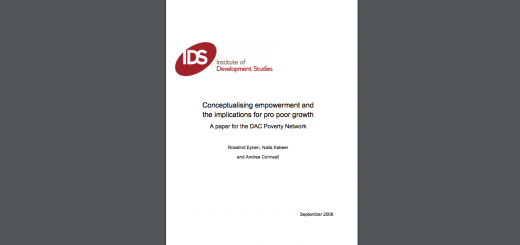Conditional Cash Transfers – A Systematic Review
Aim of the study
conditional cash transfers – economic impacts
The growing attention to social protection within the international development community since the late 1990s reflects various factors: the failure of short-term emergency responses to deal with structural food deficits, particularly in Africa; periodic financial crises which have accompanied the increasing integration of the global economy; and growing informality of labour markets which means increasing numbers of the world’s working population are outside the formal social security system. Social protection encompasses a variety of different instruments but it is the instruments grouped under the rubric of social transfers that have greatest relevance for poor people in poor countries. These are largely financed by taxes, whether the tax in question is paid by national citizens, or, via international aid, by citizens of other countries. Social transfer instruments most frequently take the form of cash transfers.
Conditional cash transfers (CCTs) are a recent innovation in the field of social protection. These provide cash transfers to low-income households, conditional on pre-specified investment in household human capital, usually children. It is argued that tying cash transfers to human capital investments in children will help to break the inter-generational transmission of poverty by increasing their productivity as adults. This in turn will help to counter the view held by many governments and donors that social transfers are unproductive and give rise to welfare dependence on the part of recipients. Whether such impacts on inter- generational poverty do indeed materialise will only be known when the current generation of children who have benefited from CCTs grow up and join the labour force.
What motivated this review is a need to know whether there is evidence of broader economic impacts associated with cash transfer programmes. If such evidence is found to be methodologically sound, it would help to offset some of the costs of financing social transfers, thereby easing their fiscal burden and increasing their appeal to policy-makers. This review investigates this possibility. It carries out a methodological mapping of studies relating to the economic impacts of CCTs, appraising these studies according to pre-defined standards of methodological rigour, selecting only those that meet these standards and then synthesising the findings of the selected studies so as to draw conclusions about the economic impacts to which a high level of confidence can be attached.
[gview file=”http://www.dfid.gov.uk/r4d/pdf/outputs/systematicreviews/CCTprogrammes2012Kabeer.pdf”]



